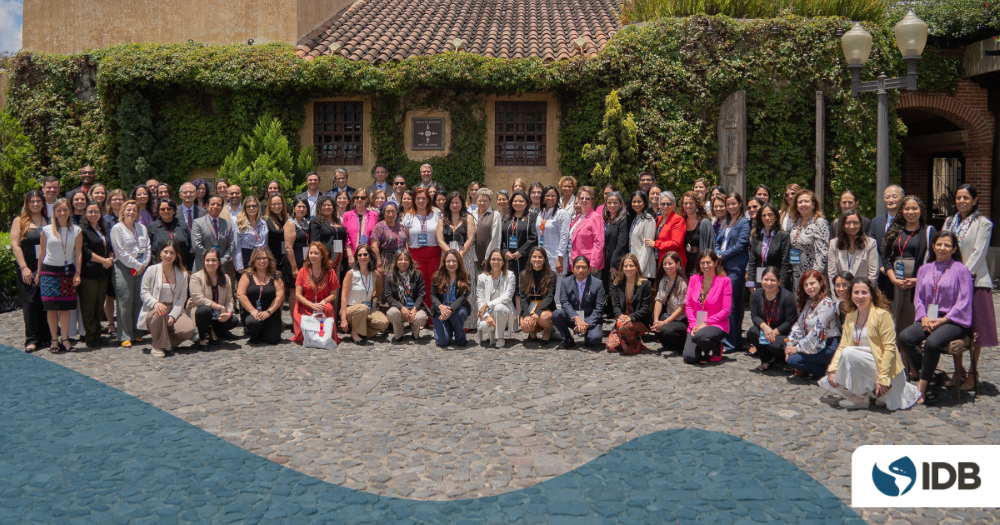In Latin America and the Caribbean, discussions on integrated care programs, policies and systems continue to gain space in public debates as they are closely related to social and economic development models.
There is great interest in the creation of systems to recognize and remunerate the work done by caregivers, redistribute care tasks to promote the reduction of the burden on women, guarantee access to quality care services for those who need them, and recognize the needs of people who vary according to their race, ethnicity, disability status, gender identity and migratory status.
For this reason, the Gender and Diversity Division and the Social Protection and Health Division of the Inter-American Development Bank organized the Regional Policy Dialogue: “Integrated Care Systems: Promoting Well-Being, Equity and the Economy in Latin America and the Caribbean,” which took place in Antigua, Guatemala, on July 16 and 17, 2024.
The group was made up of high-level authorities, including the First Lady of Guatemala, six Ministers of Women and Social Development, and four Vice-Ministers from the Ministries of Women and Social Development. A total of more than fifty people representing the governments of 18 countries in the region participated.
Demographic Changes and Their Consequences for Integrated Care Systems
One of the major topics of discussion associated with comprehensive care systems is the demographic changes that countries are undergoing. This, and the increased participation of women in the labor market, demand a social and institutional reorganization around the provision of care.
People at the Center of Integrated Care Systems
A large part of the exchanges were related to the people who require care and those who care for them. From this perspective, the number of hours women devote to unpaid care work and the urgency of continuing to work towards a cultural transformation of gender roles were analyzed.
Some components that are directly associated with people are quality standards in care services, the training of caregivers, the importance of data collection to measure the progress and impact of care policies, the need to make adaptations to local and territorial governance models, and progress in the issuance of new national and local regulations.
Local Experiences
In Latin America and the Caribbean, not only are there great advances at the national level, but there are also excellent care programs in cities, municipalities and territories. Some examples include the Bogotá District Care System; the pilot project “Local Care Management in the Corregimiento de Juan Díaz” in Panama; and the Brazilian government’s Melhor em Casa program, which coordinates federal and local efforts to expand the supply of health care services in the country’s territories.
Five Lessons from the Regional Policy Dialogue:
- A region growing in care: The region is making giant strides in the consolidation of Integrated Care Systems. There are multiple examples of successful and innovative programs that are currently being implemented not only at the national level, but also at the local and territorial levels.
- Care with an intersectional and gender approach: The design of care programs and policies must always take into consideration the needs of both the population groups that access care services and the people they care for. It is also necessary to adapt the supply of services to the particular needs of the populations based on a gender approach, and the realities derived from ethnicity, race, disability, sexual orientation and gender identity and migration status.
- New institutional arrangements: The process of implementing and putting care programs and policies into operation requires changes in governance models and a major inter-institutional and intersectoral coordination effort, as well as the opening of spaces for citizen participation and civil society organizations.
- Training of caregivers: Training is key to improving caregivers’ working conditions and well-being.
- Data collection and research: It is essential to promote continuous data collection in order to recognize care work that is often made invisible, as well as to be able to measure the impact of care programs and policies.


Leave a Reply